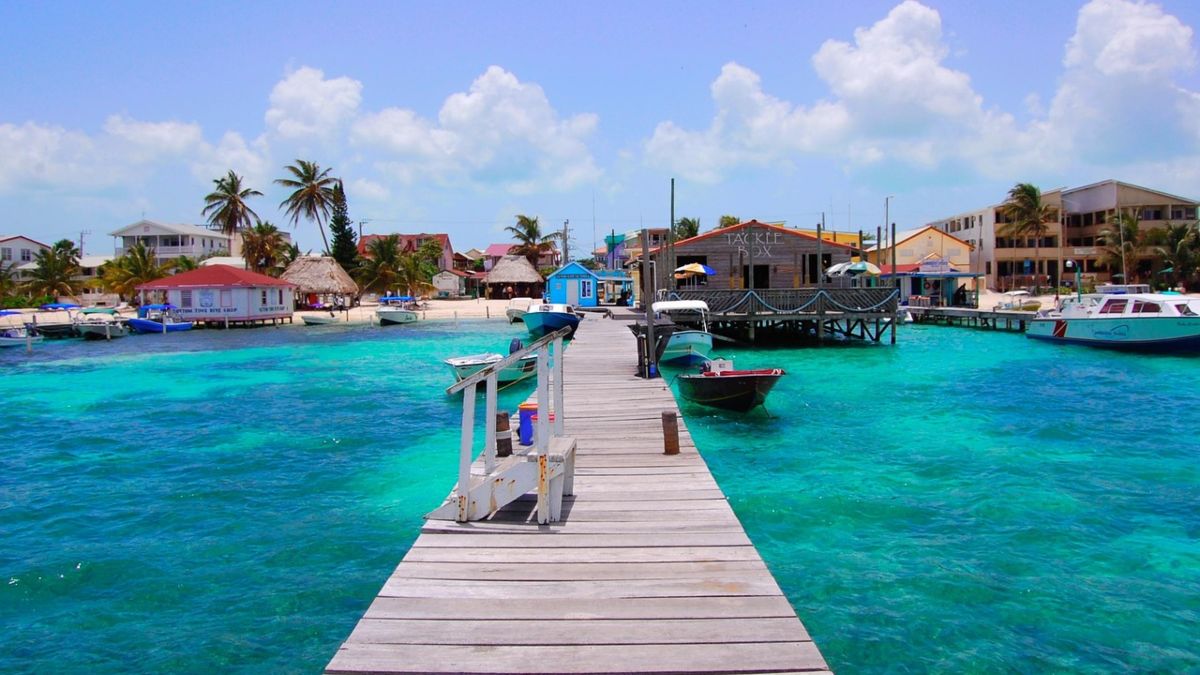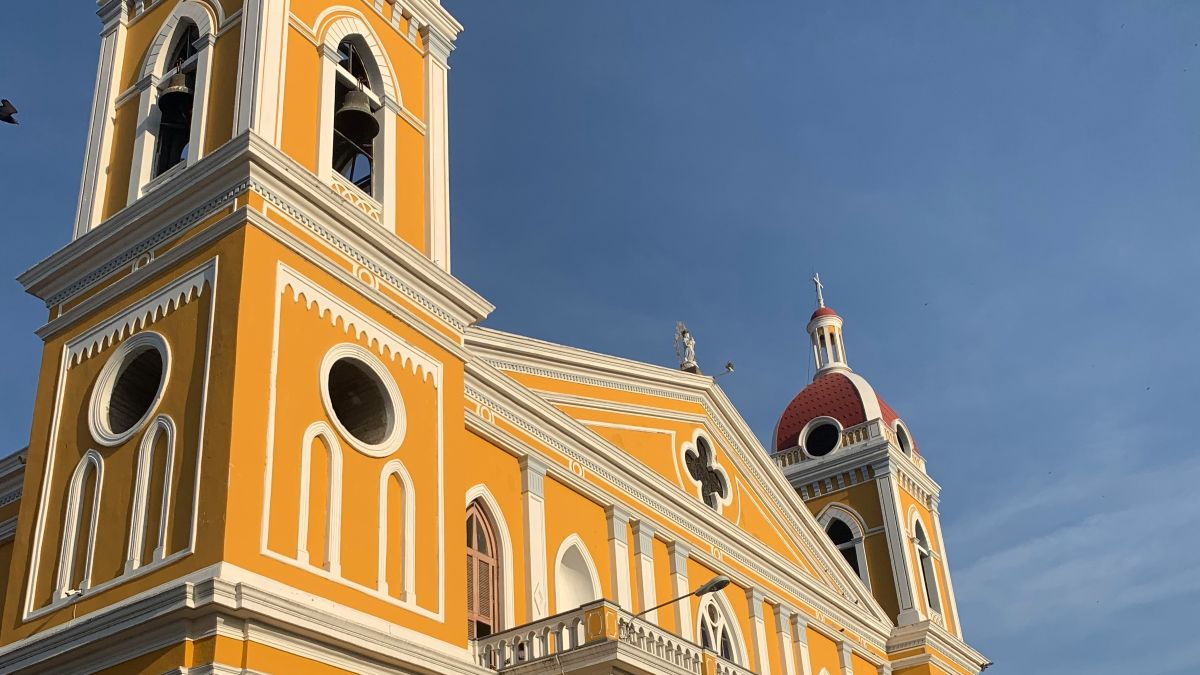Considering starting a business in Nicaragua? Learn about incorporation, taxes, banking, and navigating the local business environment.
Nicaragua offers a unique blend of opportunities and challenges for expat entrepreneurs. Known as the Land of Lakes and Volcanoes, its strategic location, diverse economy, and natural resources continue to attract foreign investment.
Despite facing economic headwinds in recent years, Nicaragua has shown resilience and potential for growth. The country’s proximity to major North and South American markets, combined with its young and eager workforce – 76% of the population is below the age of 40 – presents intriguing possibilities for business-minded expats.
For those willing to navigate the complexities, Nicaragua offers several advantages. The World Bank reports that Nicaragua has some of the lowest export management costs in Central America, making it an attractive option for export-oriented companies. This cost-effectiveness, coupled with opportunities in sectors ranging from agribusiness to light manufacturing and outsourcing services, creates a compelling case for entrepreneurship.
However, potential investors should approach with cautious optimism. The political landscape requires a nuanced understanding of the local business environment and a willingness to adapt to changing circumstances. As with any international venture, thorough research and expert guidance are essential.
In this article, we’ll explore the key steps to starting a business in Nicaragua, from understanding the economic landscape to navigating legal requirements. We’ll look at business structures, banking considerations, and tax implications to provide a comprehensive guide for expats looking to tap into this Central American market.
Looking to start a business abroad? Our guide reveals the best business opportunities in Central America, with insights on local markets, regulations, and expat experiences.https://t.co/stkt83vOKd
— Central America Living (@VidaAmerica) August 7, 2024
Understanding Nicaragua’s Business Climate
Nicaragua’s economy, while facing challenges, offers unique opportunities for enterprising expats. Understanding the current economic landscape is crucial for anyone considering starting a business in this Central American nation.
Economic Indicators and Growth Sectors
Despite recent economic headwinds, Nicaragua has shown resilience in certain sectors. The country’s GDP has experienced modest growth in recent years, with key industries driving economic activity. According to the National Institute of Development Information (INIDE), the estimated national population is 6.5 million, with a demographic dividend in the form of a young workforce.
Key sectors poised for growth include:
- Agribusiness: Nicaragua’s fertile land and varied climate make it ideal for agricultural ventures. The sector generates significant export revenue, particularly in coffee, beef, sugar, and peanuts.
- Light Manufacturing: With competitive labor costs and proximity to major markets, Nicaragua has become increasingly attractive for manufacturing operations, particularly in textiles and auto parts. If, say, you wish to manufacture custom designed hats (it’s easy to design your own on Printful!), Nicaragua is a good place to do that.
- Tourism: The country’s diverse ecology, from beaches to volcanoes, presents opportunities in the tourism sector, especially for eco-friendly and adventure tourism ventures. The tourist centers of San Juan del Sur and the southern Pacific coast, the colonial towns of León and Granada, and Ometepe are particularly attractive to tourism entrepreneurs in Nicaragua.
- Renewable Energy: Nicaragua’s geography offers potential for investments in renewable energy, particularly in geothermal and wind power projects.
- Natural Resources: The country has reserves of gold and other valuable minerals.
Challenges and Considerations
While opportunities abound, potential investors should be aware of certain challenges:
- Political Climate: There’s no getting around the fact that Nicaragua is an oppressive dictatorship. This situation requires careful navigation and ongoing attention to policy changes.
- Infrastructure: While improving, infrastructure in some areas may not meet standards that expats are accustomed to in more developed nations.
- Bureaucracy: Administrative processes can be time-consuming, often requiring patience and local expertise.
- Economic Volatility: Like many emerging markets, Nicaragua’s economy can be subject to fluctuations, necessitating robust risk management strategies.
Government Initiatives and Support
The Nicaraguan government has implemented various initiatives to attract foreign investment, including:
- Tax Incentives: Certain sectors, such as renewable energy and free trade zones, benefit from tax exemptions and holidays.
- Streamlined Processes: Efforts have been made to simplify business registration procedures, though navigating the system often still requires local assistance.
Understanding these facets of Nicaragua’s business climate is essential for expats looking to establish successful ventures in the country. While challenges exist, those who approach the market with thorough research and realistic expectations may find rewarding opportunities in this Central American nation.

Find more statistics at Statista
Choosing the Right Business Structure
When setting up a business in Nicaragua, expats have several options to choose from. The most common business vehicles are corporations, limited liability companies, and branches of foreign entities. Each structure has its own characteristics and requirements, which we’ll explore below.
Corporations (Sociedades Anónimas)
Corporations are the most flexible corporate structure in Nicaragua. Key features include:
- Capital divided and incorporated into shares
- Name must include “sociedad anónima“
- Governed by a shareholders’ meeting and board of directors
- Directors should also be shareholders
Limited Liability Companies (Sociedades Colectivas de Responsabilidad Limitada)
LLCs are formed by partners contributing capital in the form of participation. Notable aspects include:
- Name must include at least one partner’s name followed by “y compañía limitada“
- Can appoint administrators to legally represent the company
- If no administrators are appointed, any partner can act on behalf of the company
Branches of Foreign Entities (Sucursales de Entidades Extranjeras)
For foreign companies looking to establish a presence in Nicaragua:
- Must include “sucursal Nicaragua” in the name
- Managed by the parent company’s board of directors or shareholders
- Requires a local representative with full power of attorney
Formation and Registration
Regardless of the structure chosen, all businesses must:
- Be incorporated by public deed before a Nicaraguan notary
- Register with the Mercantile Registry, Tax Authority, and local municipal authority
- Complete the incorporation and registration process in approximately 35 days
It’s important to note that while there are no restrictions on foreign managers, the legal representative of any business must be either a Nicaraguan citizen or a foreign resident in Nicaragua.
Trusts are also available as a business vehicle in Nicaragua, though they are less commonly used due to higher associated costs.
When deciding on a business structure, consider factors such as management flexibility, liability protection, and your long-term business goals in Nicaragua. Corporations often provide the most versatility due to their share structure, but each option has its merits depending on your specific needs.
Navigating Legal Requirements
Setting up a business in Nicaragua involves several key legal steps and requirements. Understanding these is crucial for a smooth establishment process.
One-Stop Shop for Investment (VUI)
The Ventanilla Unica de Inversiones (VUI), or One-Stop Shop for Investment, is operated by the Ministry of Development, Industry, and Trade. This service is designed to streamline the investment and business licensing process for both domestic and foreign-owned businesses. According to the VUI, it takes a maximum of 13 days to start a business in Nicaragua.
Business Registration Process
The business registration process begins with drafting an Act of Incorporation, which requires at least two shareholders and a minimum start-up capital of C$10,000 (approximately US$400). A legal representative with Nicaraguan residency must be appointed, and the act must be authorized and certified by a Nicaraguan public notary. Next, accounting and corporate books must be purchased from local bookstores as they are required for registration.
The Act of Incorporation is then submitted to the VUI, where documents are processed by the Commercial Registry. This step requires payment of 1% of the company’s capital, with a maximum of C$30,000 (approximately US$1,200). Following this, the business must register as a trader and register accounting books at the Commercial Registry through the VUI. The process culminates in obtaining the Single Registration Document (DUR) from the VUI, which provides the Municipal License, Social Security Institute License, and Tax Payer Registration. This final step also requires payment of 1% of the company’s capital.
For corporations, shareholders must appoint a legal representative who must be a Nicaraguan Resident or Citizen residing in the country. The entire process of incorporating a company typically takes 4 to 6 weeks.
Work Permits for Foreign Employees
Foreign employees working in Nicaragua must have either a temporary work permit or a working residency card. The process to obtain these typically takes between two to six months and requires various documents including birth and health certificates, criminal records, a valid passport, and an approved labor contract. Fees for these permits include $100 for labor contract certification by the Labour Authority, and $200 for a working residency card or $25 per month for a temporary work permit from the Immigration Authority.
Additional Considerations
Additional considerations for setting up a business in Nicaragua include registering for a Taxpayer Identification Number (RUC) and being aware of specific local regulations in the city where the business is being established. It’s important to note that there are no restrictions on foreign ownership of businesses in Nicaragua.
Given the complexity of these legal requirements, especially for those unfamiliar with Nicaragua’s bureaucratic processes, it’s often advisable to seek assistance from local legal experts or business consultants. Their expertise can help ensure compliance and avoid potential delays or complications in establishing your business in Nicaragua.
Dealing with Banking and Taxes
Understanding the banking system and tax structure is crucial for any expat entrepreneur looking to start a business in Nicaragua. Here’s what you need to know:
Banking in Nicaragua
Understanding the banking system and tax structure is crucial for any expat entrepreneur looking to start a business in Nicaragua. Opening a bank account in Nicaragua can be challenging for non-residents, but becomes much easier once you obtain residency.
Banks in Nicaragua typically operate between 8 a.m. and 4 p.m., with many open on Saturday mornings. The local currency is the Córdoba (C$), divided into 100 centavos. While the US dollar is widely accepted, most businesses prefer the local currency. Most banks freely exchange US dollars into Córdobas, but Canadian dollars are not typically exchanged by local businesses or banks. Credit cards such as Visa, AmEx, and MasterCard are widely accepted for purchases like hotels, flights, and rental cars. ATMs are prevalent in most reasonable-sized towns and typically accept most US-issued debit cards.
Benefits of Banking in Nicaragua
One notable advantage of banking in Nicaragua is the interest rates offered on savings accounts. Nicaraguan banks commonly offer rates as high as 6%, compared to about 1% in the US. This, along with easy access to local currency and bill payment, financial diversification, and potentially lower fees compared to using American cards abroad, makes banking in Nicaragua attractive for expats.
Tax Considerations
Nicaragua offers several tax breaks and incentives for new businesses. A Business Tax Break is available to new businesses operating for at least six months, costing about $2,000 per year. This can be very helpful for new enterprises. Additionally, a Social Development Credit is available to businesses that have invested at least $10,000 in Nicaraguan development projects, which can assist businesses looking to expand their operations in the country.
Advice for Expats
For expats considering banking in Nicaragua, obtaining residency can significantly simplify the process. Residency can be obtained through steady passive income of $1,000 or more per month or by investing $30,000 into real estate or any other business in the country. It’s also advisable to be aware of currency exchange practices to minimize fees and to consult with local financial advisors to fully understand the tax implications and benefits of operating a business in Nicaragua.
Have you ever dreamed of starting a business in Central America? Here are some common ways how expats finance their dreams.https://t.co/cP2xOSYZ8y
— Central America Living (@VidaAmerica) April 29, 2024
Final Thoughts
Starting a business in Nicaragua as an expat entrepreneur offers a unique blend of opportunities and challenges. The country’s strategic location, young workforce, and diverse economic sectors present intriguing possibilities for those willing to navigate its complex business landscape. From agribusiness to tourism, Nicaragua’s growing industries and competitive costs can be attractive for export-oriented businesses.
However, potential investors should approach with cautious optimism. The political climate demands careful consideration and adaptability. While government initiatives aim to streamline processes and attract foreign investment, bureaucratic hurdles often require local expertise to navigate effectively.
For those considering this venture, thorough research and realistic expectations are crucial. Obtaining residency and seeking local legal and financial expertise can significantly smooth the path. While challenges exist, Nicaragua’s potential for growth can offer rewarding opportunities for well-prepared and resilient entrepreneurs.



